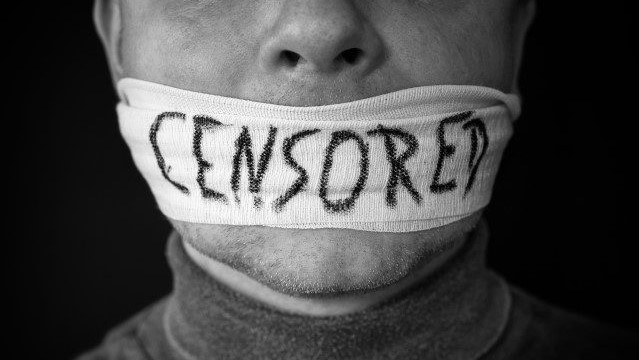Most voters support Republicans in Congress investigating allegations of censorship by social media companies, a Rasmussen Reports survey released Tuesday found.
Most, 77 percent, agree that it is at least somewhat likely that social media companies such as Facebook “censor news and commentary because of political bias.” Of those, 52 percent said it is “very likely.” There is a consensus across the board, as most Republicans, Democrats, and independents believe it is at least somewhat likely.
Nearly three-quarters, 72 percent, believe censorship by social media companies is at least somewhat serious problem, but 73 percent also believe that “misinformation” is at least a somewhat serious problem on social media as well.
According to Rasmussen Reports:
Politics clearly affects perceptions of whether censorship or the spread of misinformation is the worst social media problem. More Republicans think censorship is a Very Serious problem (69%) than view misinformation as a Very Serious problem (42%). By contrast, significantly more Democrats see misinformation as a Very Serious problem (57%) than say the same about censorship (32%). Among voters not affiliated with either major party, 49% say censorship by social media companies is a Very Serious problem, slightly more than the 45% who see misinformation as a Very Serious problem.
Far more Republicans (70%) than Democrats (39%) or unaffiliated voters (49%) say it’s Very Likely that social media companies like Facebook censor news and commentary because of political bias.
However, when asked if they support Republican plans to investigate social media companies for censorship, there is a consensus, as 66 percent expressed approval. Of those, 43 percent “strongly” approve.
The move is approved by 86 percent of Republicans, 52 percent of Democrats, and 63 percent of independents.
The survey was taken December 8 and 11, 2022, among 1,000 likely U.S. voters. It has a +/- 3 percent margin of error and coincides with Florida Gov. Ron DeSantis (R) calling out Big Tech during a panel discussion on Tuesday, in which he said that there is proof that social media companies targeted “scientific dissenters” to control the narrative around the Chinese coronavirus.
Elon Musk’s Twitter released another batch of internal discussions on Monday, which revealed that an employee from China tried to warn fellow Twitter employees that censorship is wrong. https://t.co/v9zLtA2gAR
— Breitbart News (@BreitbartNews) December 12, 2022
“Part of this issue and other issues with COVID … goes back to an attempt to enforce one acceptable narrative on all these issues.” DeSantis said, pointing to Twitter’s censorship of Dr. Jay Bhattachary.
“You also saw it with Dr. Fauci and some of these people saying that they needed to go after these people who wrote the Great Barrington Declaration,” DeSantis said of the open letter questioning the handling of the pandemic. The governor said it was clear that those pushing lockdown policies and masking “didn’t want to have any criticism” of their policies.
“And so part of the reason I think it’s been a bad response is because from the very beginning, you’ve had a lot of arrogance that it’s our way or the highway, and anyone that offers any type of a dissenting opinion — and they were censoring from day one,” DeSantis said, adding that the Faucis of the world sought to “distance themselves from any criticism or denigrate anybody that had a different way of thinking.”
“Ultimately, your policies or your positions or your analysis of this medical science should stand on its own. And if it’s not able to accept criticism, if you can’t defend the policy against valid criticism, then maybe you need to be looking in the mirror, but that’s not what these elite wanted to do,” he said.
Twitter censored Breitbart News senior writer John Nolte after he made a joke about transgender Health & Human Services Assistant Secretary Rachel Levine. https://t.co/g9c6rWuyJw
— Breitbart News (@BreitbartNews) March 25, 2022
DeSantis’s remarks follow the release of Dr. Anthony Fauci’s November deposition, in which he claimed to be “so disassociated” from social media yet went on to admit that he spoke to Facebook CEO Mark Zuckerberg and revealed that his daughter worked for Twitter.




